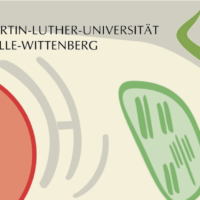Học Bổng Bốn Phương
Học bổng PhD ngành genomics nông nghiệp tại Tây Ban Nha 2018
- Chi tiết bài viết
- Bài viết liên quan
Trung Tâm Nghiên Cứu Genomics Nông Nghiệp (The Centre for Research in Agricultural Genomics – CRAG) đang tìm kiếm một sinh viên PhD 4 năm, sẽ bắt đầu chương trình từ 2018, cho dự án “Transposable Elements as main players of crop plant genome evolution.” Các sinh viên tiến sĩ trong chương trình đào tạo của CRAG sẽ được nhận bằng PhD từ một trong hai trường, Autonomous University of Barcelona (UAB) hoặc University of Barcelona (UB).
Chương trình PhD 4 năm này được tài trợ bởi “National Programme for the Promotion of Talent and its Employability 2016” từ Bộ Kinh Tế và Cạnh Tranh Tây Ban Nha.
Hạn chót nộp đơn là thứ Sáu, ngày 25 tháng Tám 2017. Các ứng cử viên được nhận sẽ bắt đầu các dự án PhD vào đầu năm 2018.
Các yêu cầu xét tuyển và quy trình:
Eligibility:
1. The program is aimed at international students who have completed one of the following options by
August 2017:
- studies that lead to an official Spanish (or from another country of the European Higher Education Area) university degree in Biology, Biochemistry, Biotechnology, or related areas and that have 300 credits (ECTS), of which at least 60 must correspond to master level.
- a degree in a non-Spanish university not adapted to the European Higher Education Area that gives access to doctoral studies in Biology, Biochemistry, Biotechnology or related areas.
2. Candidates are selected exclusively on merit, on the basis of their curriculum. Academic grades and the curriculum of applicants are evaluated, as well as reference letters and a motivation letter. No selection criteria for positive or negative
How to apply:
Applicants should send the application materials directly to Josep Casacuberta, Principal Investigator of the project at: josep.casacuberta@cragenomica.es
Selection procedure:
Applications will be reviewed by the Principal Investigators that will host the fellows, and preselected according to their written application, grades, and reference letters. Short-listed candidates will be interviewed by the Principal Investigator.
These PhD positions are funded by the Spanish Ministry of Economy and Competitiveness (MINECO) and CRAG. CRAG will assist the selected candidates to submit the required documents at the Spanish MINECO website in fall 2017. Applicants who have not been successful but have received a positive evaluation may be put on a waiting list to cover possible renunciations and future positions.
The research project:
Transposable Elements as main players of crop plant genome evolution (AGL2016-78992- R)
Principals Investigators: Josep Mª Casacuberta and Carlos Vicient
Genome evolution at large, and plant breeding in particular, is the result of the selection of new genotypes that translate into individuals with phenotypes more adapted to a new environment or that better suits the needs identified by the breeder. Genome variability is the raw material on which selection operates, and therefore understanding how genetic variability is produced is therefore key both for the study of genome evolution and for plant breeding. Whereas most studies up to know have focused on single nucleotide polymorphisms (SNPs), transposable elements (TEs) are being recognized as a major source of genomic variability. In our laboratory we have developed bioinformatic tools to annotate TEs and analyze their insertion variability. The main objective of our team is to evaluate the role of TEs in the generation of variability selected during crop domestication and breeding using different crops and model systems. In particular, we are analyzing the variability at the interspecific, intraspecific and somatic levels in Prunus (peach and almond), and we are analyzing the impact of TEs in the evolution of chromosome structure comparing melon and cucumber. In addition, our research team is interested in analyzing the regulation of the transposition process using model TEs and plant organisms, as well as to develop TE-based tools for genome engineering. In particular, we disecting the insertion process of retrotransposons in Physcomitrella patens, and we are using retrotransposons as vectors which may allow increasing the efficiency of gene edition methods based on CRIPR-Cas approaches.
Nguồn: Dr. Nguyễn Tấn Trung






